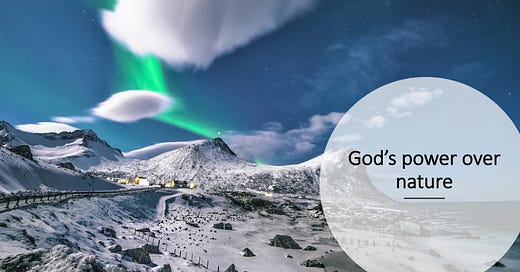Memorial of Saints Cyril, Monk, and Methodius, Bishop
At the beginning of the Bible, we read that when God was creating the heavens and the earth, there was nothing except chaotic waters. We are also familiar with the Flood story that destroyed the old world marked by evil. But in both stories, the voice of the Lord prevailed over the vast unruly waters by creating and then recreating the world.
A few weeks ago, I went to Hualien, a beautiful city located on the east coast of Taiwan. From Taipei to Hualien, we cut through the mountains that rise more than 3000 meters above sea level. Then, we went down towards the vast waters of the Pacific Ocean. On the first day of our trip, the weather was cold, and a strong wind was blowing from the north. The sky was covered with thick dark clouds pouring the rain. But the following day, everything became quiet and the Pacific was calm. As I stood on the seashore, looking at the vast waters and having the high mountains behind me, I felt small before the greatness of nature.
In the ancient world, nature was considered divine, and its power was evident in natural disasters such as earthquakes and floods. Deities were often associated with different aspects of nature. There were the gods of storm and thunder, the gods of sea and earthquakes. But, the Bible demythologises nature. There is no other god besides the Lord (see Is 45:5). He created the universe and has it under control. Psalm 29 celebrates the power of God over nature.
For the ancient Israelites, one clear evidence of God’s power over nature was His control over rain. The holy land depended on two seasons of rain in spring and autumn. Those rains were promised as a reward for obedience and drought was the consequence of sin (see Deut 11:13-17). Psalm 29 was incorporated into the liturgy of the feast of Tabernacles as a prayer for rain. It was on this feast that Jesus cried out in the temple, “if anyone thirsts, let him come to me and drink” (John 7:37). And then, he promised us the gift of the Holy Spirit (see John 7:39).
There is a three-day prayer for good harvest, protection from natural calamities, and war in my country. It usually takes place in May. After the Eucharist, there is a procession between small chapels and roadside crosses. As the faithful walk, they pray the litany of the Saints and sing songs of supplication for protection from natural calamities and tragedies, and the priests bless the fields with holy water. Like the prayer for rain during the feast of Tabernacles, this three-day prayer for a good harvest expresses our trust that God is in control of nature and that only He can bless us with well-being and peace.




